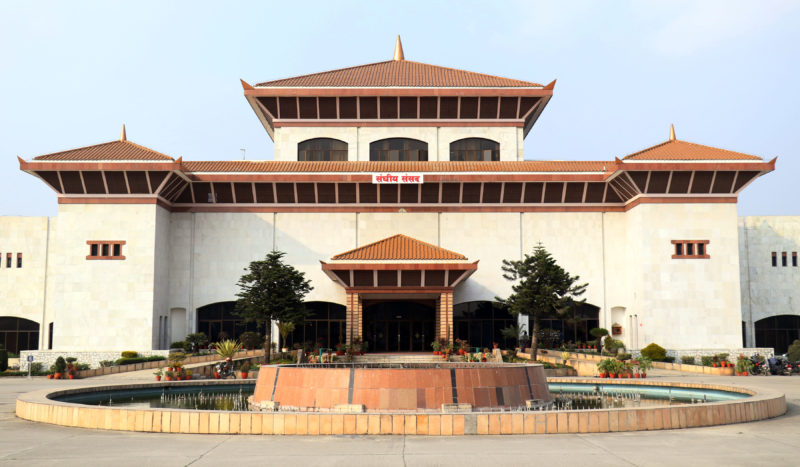New bill proposes banning adverts on utility poles
Kathmandu, January 11
The Federal Parliament has prepared the Advertisement (Regulation) Bill to provide for legal provisions for regulating advertisement to be published or broadcast for market promotion, sale and publicity of goods and services.
According to the bill, anyone may disseminate advertisement of any goods or services with quality or features thereof to promote them and help consumers make right choice under the prevailing law. The bill proposes that the concerned advertiser shall have to obtain permission to disseminate advertisement through hoarding boards. “Any person, who wishes to display hoarding board in public place for advertisement of goods or services, shall obtain permission of the concerned local level,” it states. However, this provision shall not bar anyone from displaying a hoarding board about one’s profession or occupation in a private house or office in prescribed size without causing disturbance to the public road or land.
“No one shall be allowed to display hoarding board if it causes adverse effects to the natural beauty and aesthetics of historical sites, and obstructs to mobility of people,” it states. The bill also proposes to prohibit the display of hoarding boards on electricity and telephone poles. Similarly, it prohibits the advertisements related to any goods which are banned by the prevailing laws, gambling and lottery, obscene or indecent materials, arms and ammunition and prescription drugs, among others.
Similarly, the advertisements which may disturb national sovereignty, territorial integrity and cordial relations among the federal agencies; dishonour Nepal’s national flag and national anthem, national figures and coat of arms; instigate sedition, defamation, crime and contempt of court; encourage gender discrimination and untouchability; use trade mark, and patent, design and other industrial property without approval or permission of the concerned owner’.
The bill has also stipulated a provision of clean feed policy for foreign television channels in Nepal. This policy bars TV channels from broadcasting foreign advertisements, both in recorded and live feeds. “It shall come into effect after the government publishes a notification in the Nepal Gazette regarding the clean feed broadcast,” the bill states. Nepali media shall not be allowed to broadcast foreign ads by dubbing them.
The bill empowers the local level to declare a certain area of any place of religious, cultural or archaeological importance, and any educational or health institutions as ‘no advertisement area’ on any specific matters. Similarly, the adverser of any goods or services shall have to mention his/her name and address with warning message on the advertisement.
“No one shall circulate message to mobile phone or email for advertisement of any goods or services without consent of the concerned persons. However, the federal government, provincial governments or local levels may circulate message for dissemination of public service announcements and or giving early warning through mobile phone or email at the time of disaster,” the bill states.
The bills stipulates a provision of a seven-member advertisement board led by a person appointed by the government to carry out functions related to regulation of advertisements. The advertisements to be published or broadcast from various media in the provincial and local levels shall also be regulated by the concerned governments.
“Anyone who commits an offence contrary to the provisions of the bill shall be punished with a jail term of up to five years or a fine of up to Rs 500,000, or both, according to the gravity of the cases,” the bill states.
If any harm is caused to a person due to misleading advertisement or if anyone uses creation of the another person on the advertisement without his/her permission, the concerned victim may submit an application to the board for compensation.






